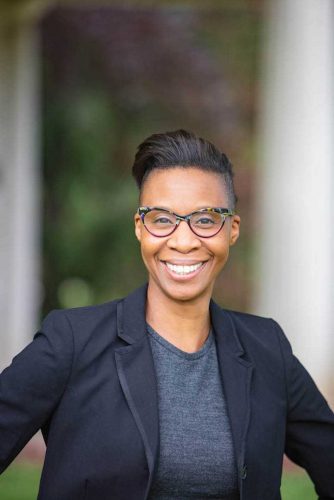 In an unprecedented move, Facebook, the world’s largest online social network, is opening its data vault to the academic research community – and a University of Guelph professor and social media expert is helping to lead the project.
In an unprecedented move, Facebook, the world’s largest online social network, is opening its data vault to the academic research community – and a University of Guelph professor and social media expert is helping to lead the project.
Political scientist Tamara A. Small, an expert in digital technology and its influence on the electoral process, is the only Canadian appointed to Social Science One. The new, independent 82-member international commission will develop and oversee the Facebook-led initiative.
Small serves on the commission’s North American advisory board and its political advertising committee.
“Scholars being able to have access to this data is truly unbelievable,” she said, adding that, until now, researchers faced restraints in using and publishing Facebook data.
Now Facebook, which has more than 2.2 billion users worldwide, is set to share its data more freely with researchers while preserving the anonymity and privacy rights of users.
“It is amazing that this data is being exposed to academics in a way that is both useful for society and social

science and fits with what Facebook does as a business,” Small said.
Social Science One is a partnership among Facebook and seven non-profit foundations. Initially its principal goal is to study the role of social media on elections and democracy.
Scholars worldwide may now apply for access and funding to study the first Facebook data set, which covers information and misinformation. The process involves rigorous peer review.
“Being able to look at this data and think about the relationship between democracy, elections and politics in a systematic way is a really important step toward understanding what this data means to society. We haven’t been able to do this before,” Small said.
Social Science One is co-chaired by Gary King of Harvard University and Nathaniel Persily of Stanford Law School.
“The data collected by private companies has vast potential to help social scientists understand and solve society’s greatest challenges,” said King.
The U.S.-based Social Science Research Council will administer the research funding; no research funding will come from Facebook.
Recent breaches of privacy and the use of data to manipulate elections have affected Facebook’s reputation and profits and are a potential threat to the democratic process, Small said.
The combination of election meddling and the proliferation of fake news have caused widespread concern, she said, adding that trust needs to be restored and the work of Social Science One could go a long way toward that end.
Contact:
Prof. Tamara Small
t.small@uoguelph.ca